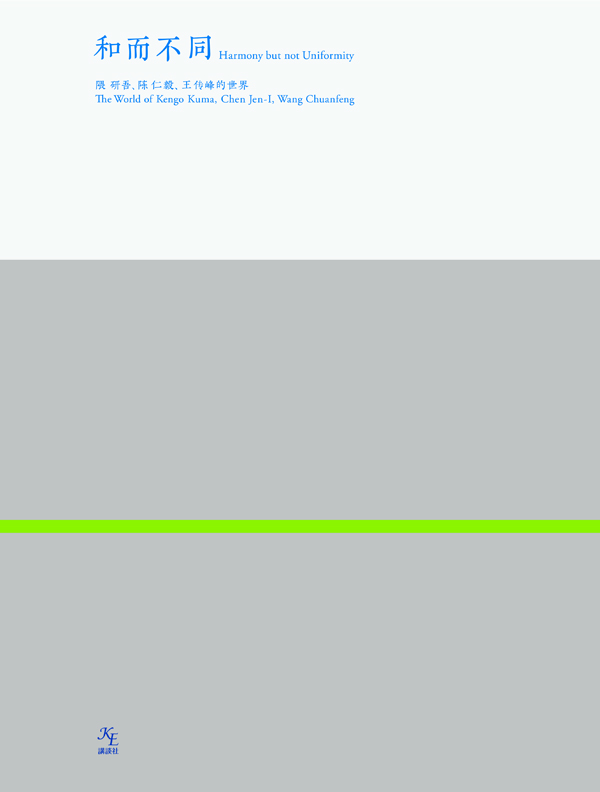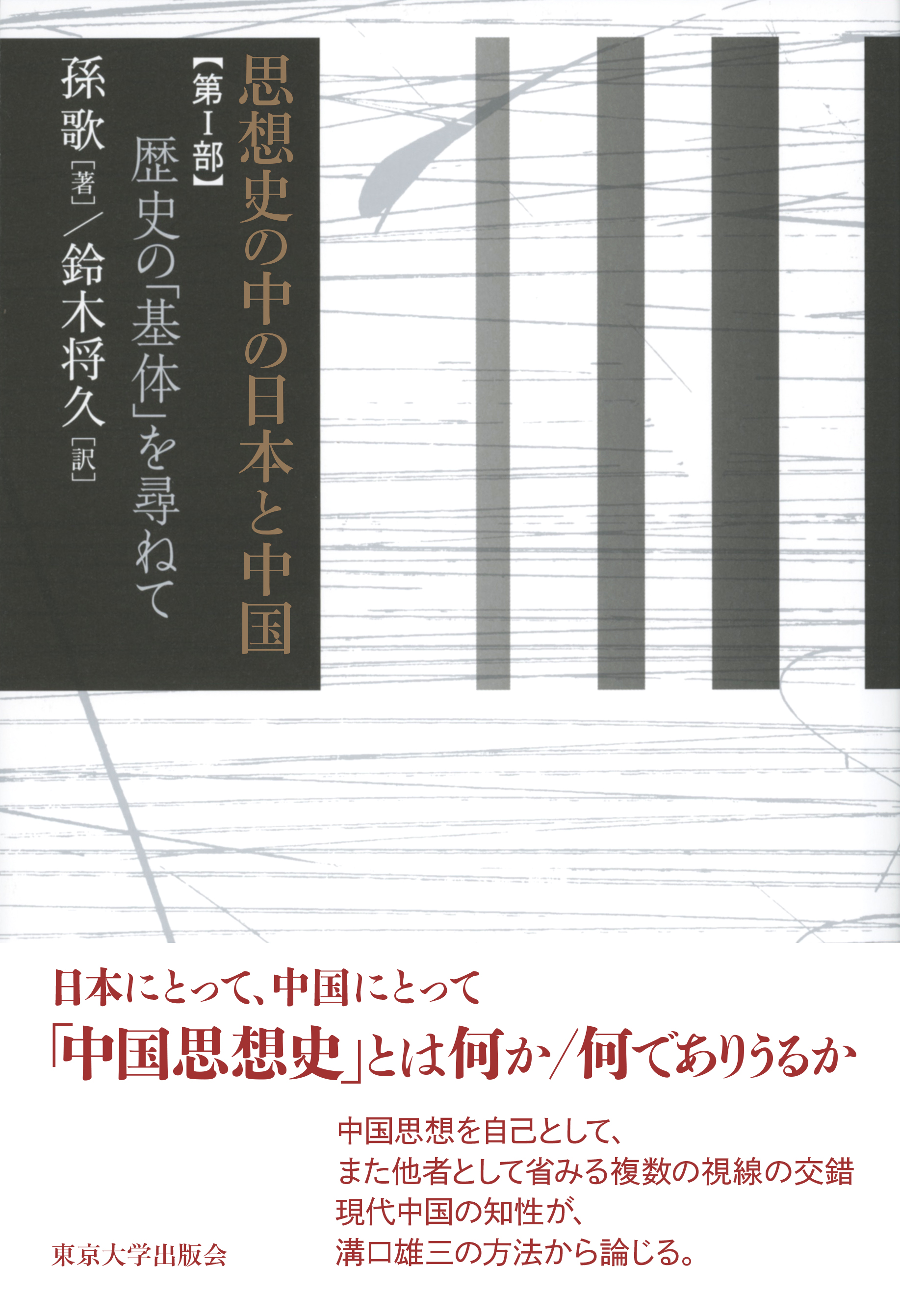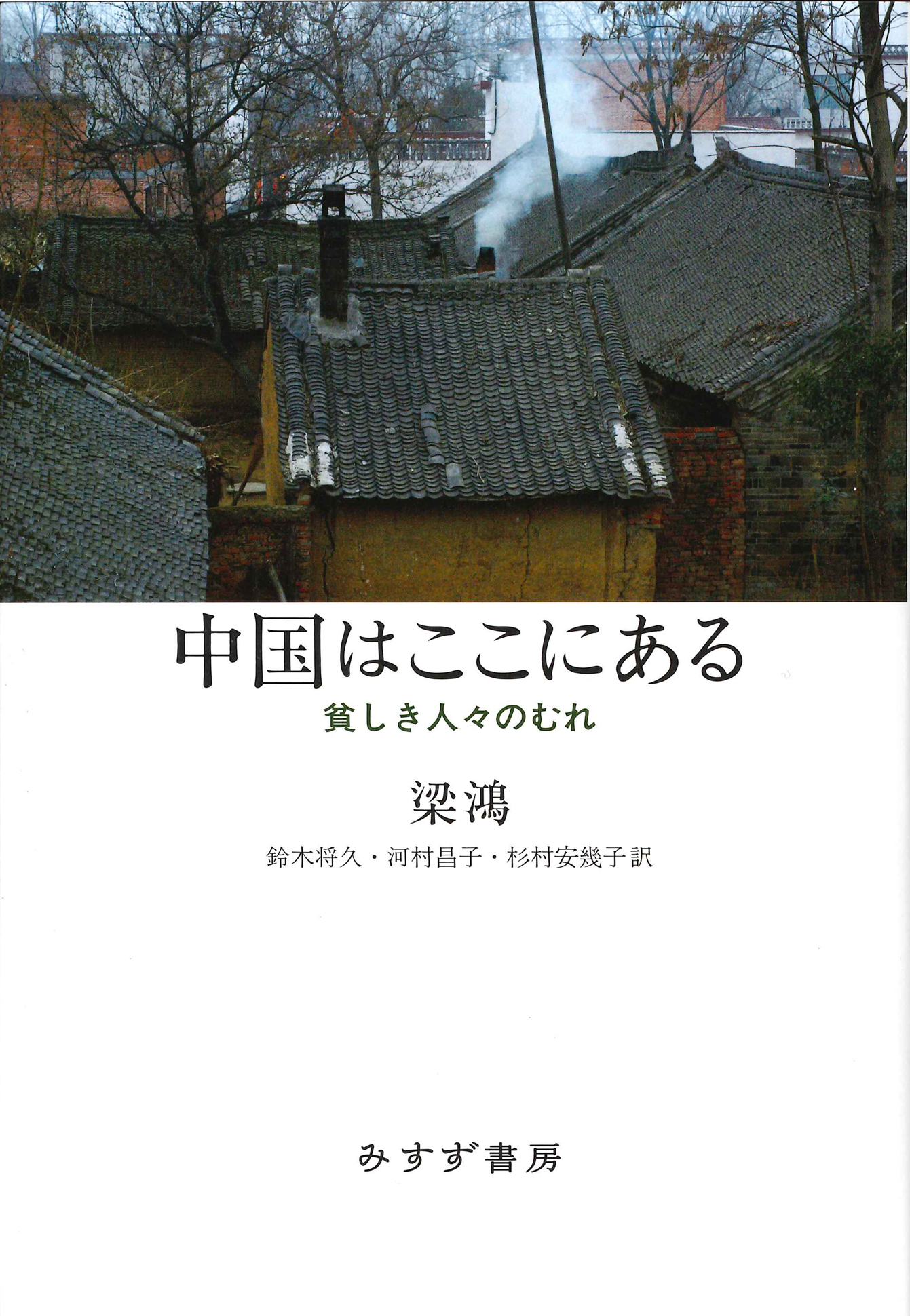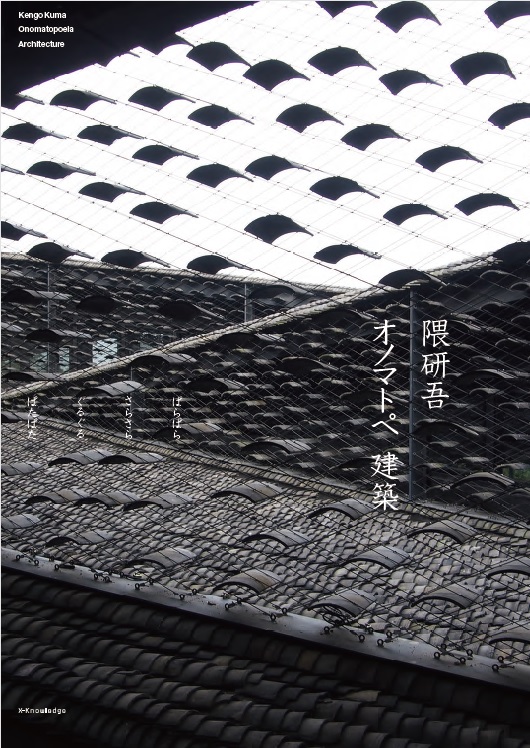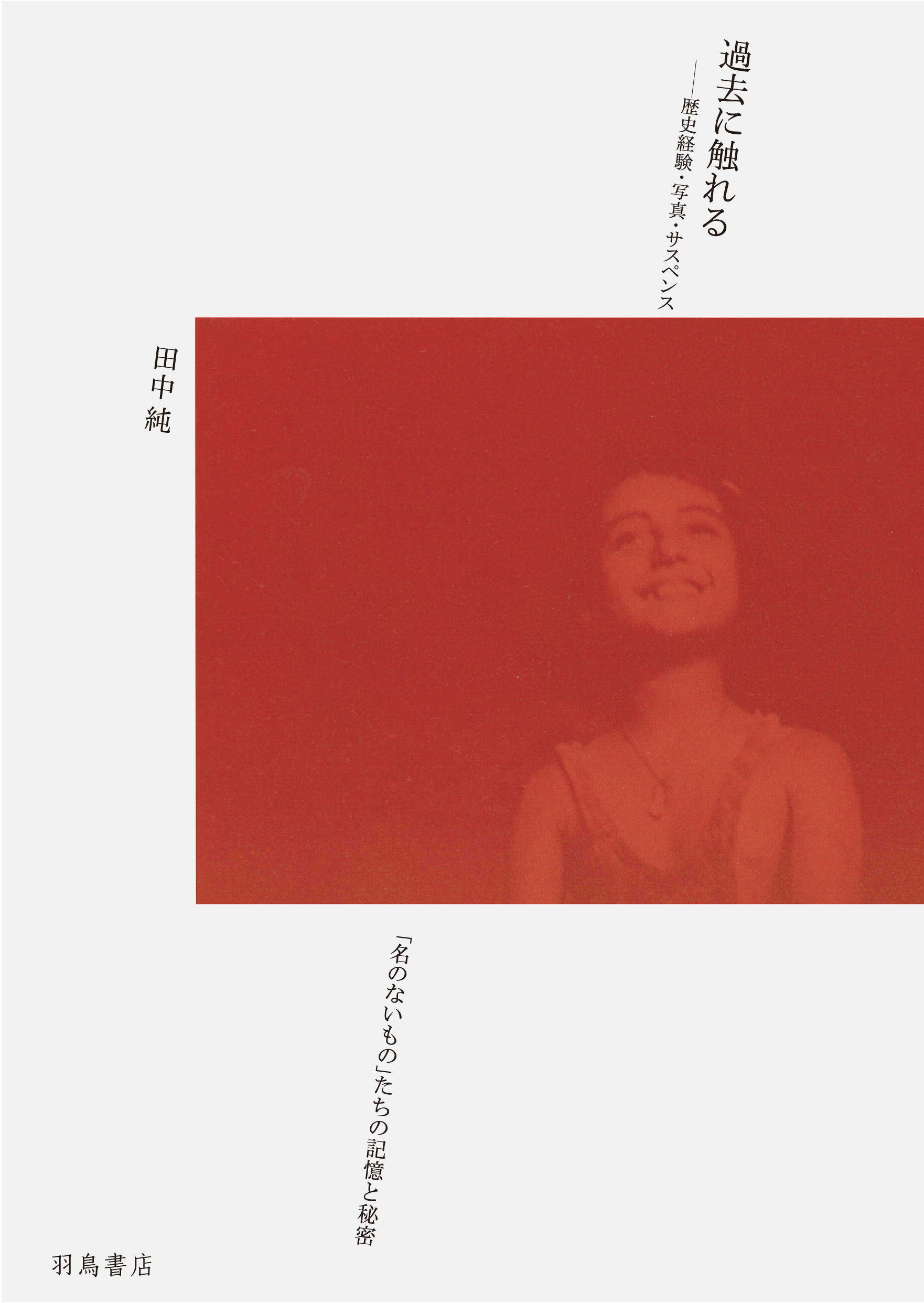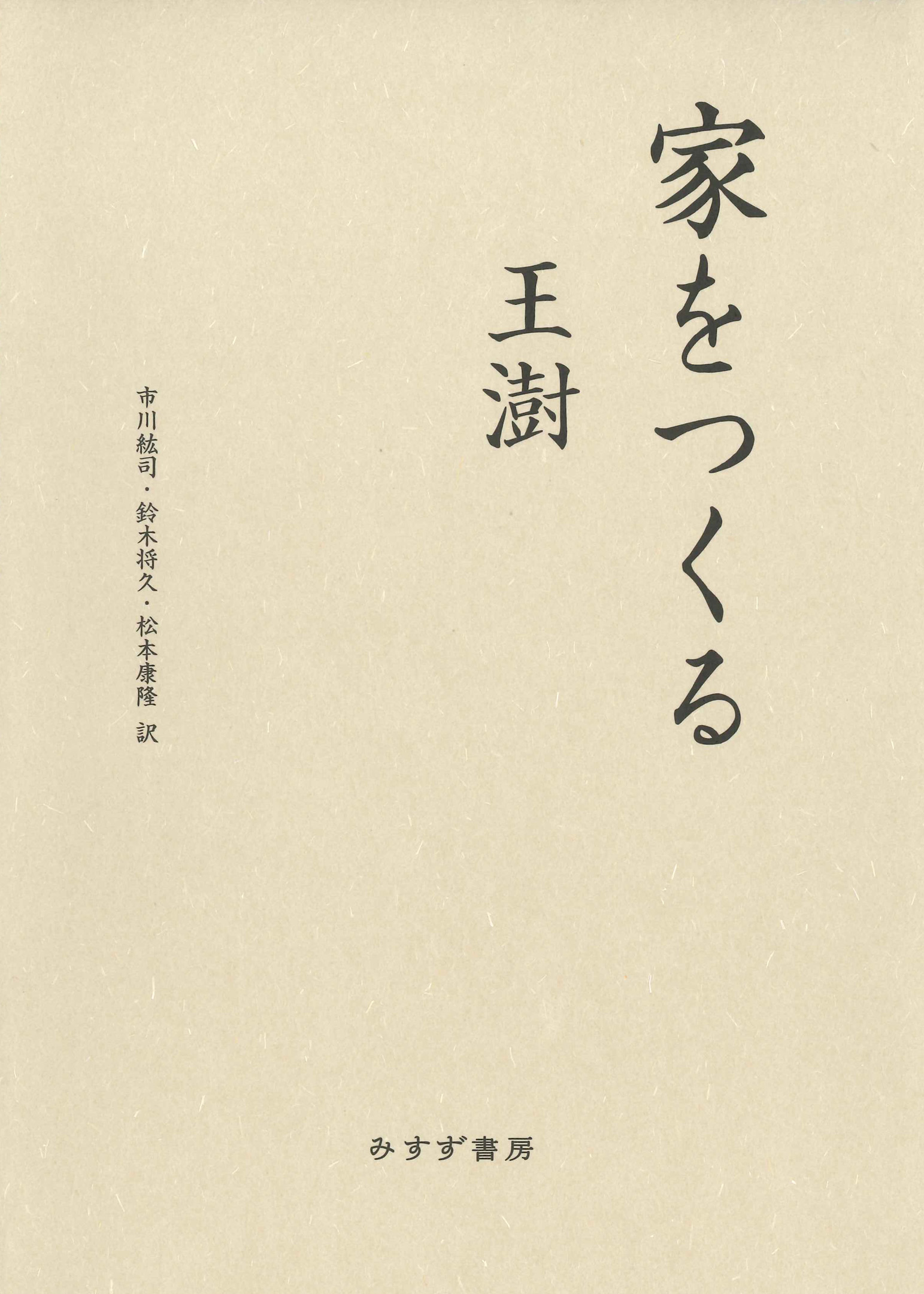
Title
Ie o Tsukuru (Imagining the House)
Size
372 pages, A5 format
Language
Japanese
Released
June 16, 2021
ISBN
978-4-622-09009-0
Published by
Misuzu Shobo
Book Info
See Book Availability at Library
Japanese Page
This book is a Japanese translation of Chinese architect Wang Shu’s Imagining the House. Wang Shu was the first Chinese citizen to win the Pritzker Architecture Prize, which is the Nobel Prize in architecture. His architectural style is said to evoke history through its texture, and while unmistakably Chinese, given the adherence to the Chinese context, it points toward a more universal direction. This is perhaps the reason he is so well known worldwide in the field of architecture. The book includes essays Wang Shu wrote at various sites, as well as interviews, an account of his career up to the present day, and his core professional thoughts, providing a full portrait, so to speak, of Wang Shu’s architectural thought.
According to Wang Shu himself, his architectural philosophy is rooted in the world of traditional Chinese literati. His goal is to capture the spiritual world of the traditional Chinese literati and create a world that resembles a landscape painting or a space that resembles a traditional garden. In sum, his goal is to replace the anthropocentric worldview through the creation of a space for the fusion of people and nature. Therefore, for example, when building a university campus, he would intentionally preserve the original mountains. Similarly, he has been known to use waste products as building materials, introduce traditional craftsmanship and attempt manual creations, and implement layouts that are not necessarily convenient to make users aware of their own physicality. This book also contains photographs of representative buildings, depicting for readers the embodiment of Wang Shu’s architectural ideas.
Among the interesting aspects of this book is that it does not merely discuss such ideas; in fact, the narrative of Wang Shu’s career was written by the man himself. His early relationship with his grandfather and his childhood experience of the Cultural Revolution are intriguing, but it is his experiences after entering university in the 1980s that are the most noteworthy. He says that he developed his rebellious spirit in university in the 1980s. This was right around when the Cultural Revolution was ending, and intellectual values were undergoing major changes in China. After graduating from university, as China underwent economic development and large-scale architectural projects were launched, Wang Shu demonstrated his rebellious spirit by abandoning mainstream architectural ideas and approaching a life fused with nature. His career uniquely illustrates the process by which China has undergone massive changes since the 1980s.
It is precisely because of his career that Wang Shu has been able to demonstrate his universal imagination while adhering to the Chinese context. At a superficial level, his discourse, which praises the world of the traditional Chinese literati, appears to be in line with the direction of the current Chinese government, which asserts the cultural superiority of traditional Chinese thought against the backdrop of international economic power. However, upon carefully reading this book, the reader will find something else that is completely different: Wang Shu has rebelled against mainstream thinking, and by thoroughly deepening the history and texture around him, he has created ideas that differ from conventional wisdom and has proposed new ideas that universally inspire people’s thinking. It is hoped that, through this book, readers will come into contact with the new imagination that originated in China.
(Written by SUZUKI Masahisa, Professor, Graduate School of Humanities and Sociology / 2022)
Related Info
Wang Shu Amateur Architecture, Imagining the House, Lars Müller Publishers, 2012.
https://www.lars-mueller-publishers.com/wang-shu-%E2%80%93-imagining-house



 Find a book
Find a book


